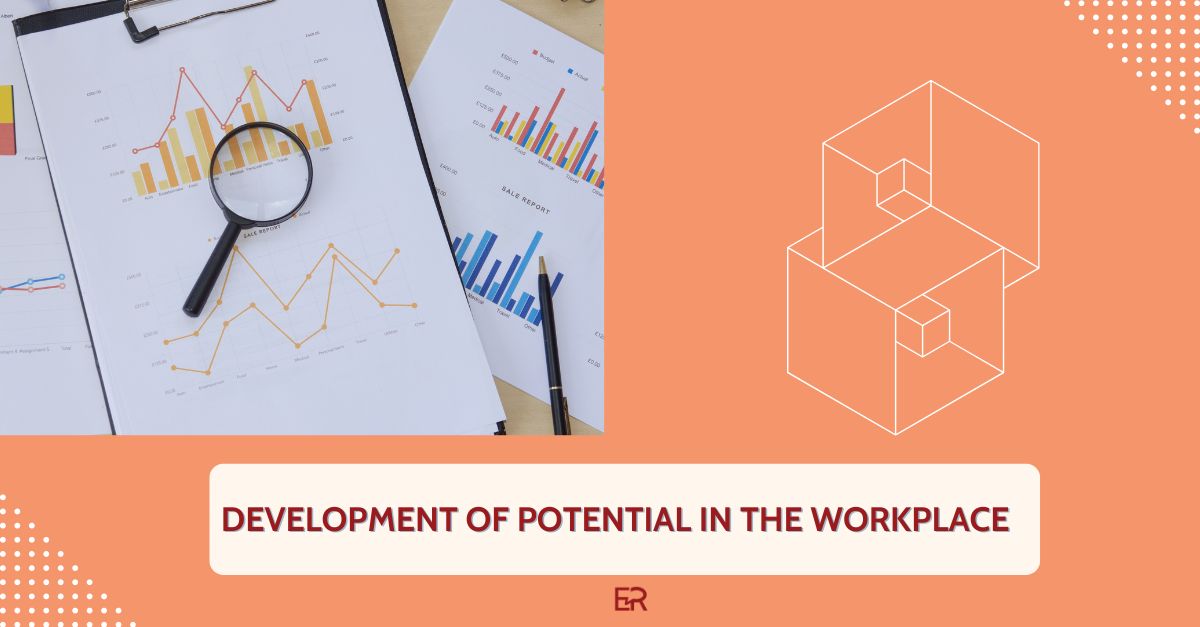
6 October 2024 Developing potential in companies: why it is important and examples of programmes
Developing potential in the company is important because it keeps the organisation's distinctive competencies up-to-date. It is a process that requires continuous intervention, for significant results in the evolution of the company
Developing potential in the company: what does it mean
The potential of a company is the capacity that an organisation has to grow, develop and achieve its goals. This capacity is expressed through:
- People: the employees with their skills, experience and capacity for innovation.
- Resources: all the tools the company has at its disposal, such as machinery, technology, financing, etc.
- The structure: how the company is organised, what processes and procedures it uses.
- Culture: the values, visions and behaviour that characterise the company.
- The market: the growth opportunities the market offers and the company's ability to exploit them.
With particular reference to people, potential therefore reflects all the knowledge, skills and strengths, not yet expressed, that could be useful to the company in the future.
Why the development of business potential is important
It is important for a company to engage in the development of its employees in order to to keep pace with change and continue to seize opportunities.
Indeed, employees with up-to-date skills and knowledge are able to work more productively and efficiently, as well as develop new ideas and innovative solutions for the company.
And more generally, a more qualified staff produces higher quality work, with fewer errors and defects.
But how do potential development programmes in companies take place?

Defining potential development programmes in the company
It must be said at the outset that potential development programmes that can be implemented in a company require an analysis of the specific needs and objectives of the entire organisation.
Analysis of up-to-date data
Potential development programmes should not be an occasional event, but a continuous, flexible, and specific process.
For this, 2 distinct phases can be identified:
- Information about employees' skills and interests should be collected, through performance appraisal systems, regular and specific feedback, and individual interviews on aspirations and career goals. Each employee is unique, with different needs and aspirations, which may change over time.
- The choice of the most suitable programme depends on several factors, including the size of the company, the sector in which it operates, the company culture that is more or less favourable to collaboration and recognition, and the resources available in terms of specific budgets allocated.
5 examples of potential development programmes
As it is becoming increasingly necessary to use a broader and more continuous approach to professional development, here are five programmes that can be initiated in companies, even alternating in time, according to specific needs.
Targeted training
It concerns courses, workshops, and seminars to deepen skills technical, relational, and of management , specific to different roles and business areas. Examples are specific courses for managers, IT security training for IT staff, and workshops on interpersonal communication for sales teams.
Job rotation
It is the periodic rotation of employees between different positions and departments to expand their knowledge and skills and to foster organisational versatility and flexibility. One hypothesis is the exchange of tasks and activities between a customer service employee and a warehouse operator, or the alternation of an engineer between the design and production departments, or even a rotation schedule between the production, quality control and logistics departments.
Mentoring
E' the coaching of a senior to a less experienced colleague to provide support, advice and guidance over a specific period of time. An example is the case where a senior sales manager supports a new salesperson to help him/her fit into the team and quickly acquire the practical ways of working to operate optimally.
Leadership and career coaching
It concerns specific, targeted interventions with a professional coach to help step into new roles and achieve the goals of career development provided by the organisation. A typical case is a coaching programme to help a manager improve his or her leadership and team management skills or other competences , to be developed practically and concretely over time.
Request career coaching activityIndividual development plans
I am a customised development paths, defined on the basis of the competencies and the aspirations professionaland according to specifications prospects for the organisation's development. An individual development plan may express a medium- or long-term vision and concern specialisation on particular topics, with a view to coordinating a complex project or a specific order.
Often an individual development plan may include a mix of activities and interventions to foster learning in different, even diverse fields.
All these potential development programmes must be integrated into the corporate strategy and must be accompanied by a results monitoring system, also through feedback from managers and supervisors.

Conclusions: developing potential in the company has a strategic value
Developing potential in the company is not only an investment in people, but is a forward-looking corporate strategy that creates value for the company as a whole in the long term.
In an ever-changing world of work, companies need to adapt quickly to change, and investing in the development of employees' potential allows them to do this by continuously updating their core competencies.
Potential development programmes also foster collaboration and knowledge sharing, helping to keep employees' motivation for their work activities high.
To learn more and receive my advice on these issues
You can also read:
